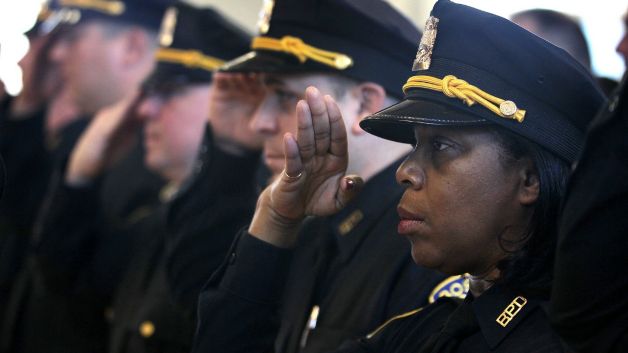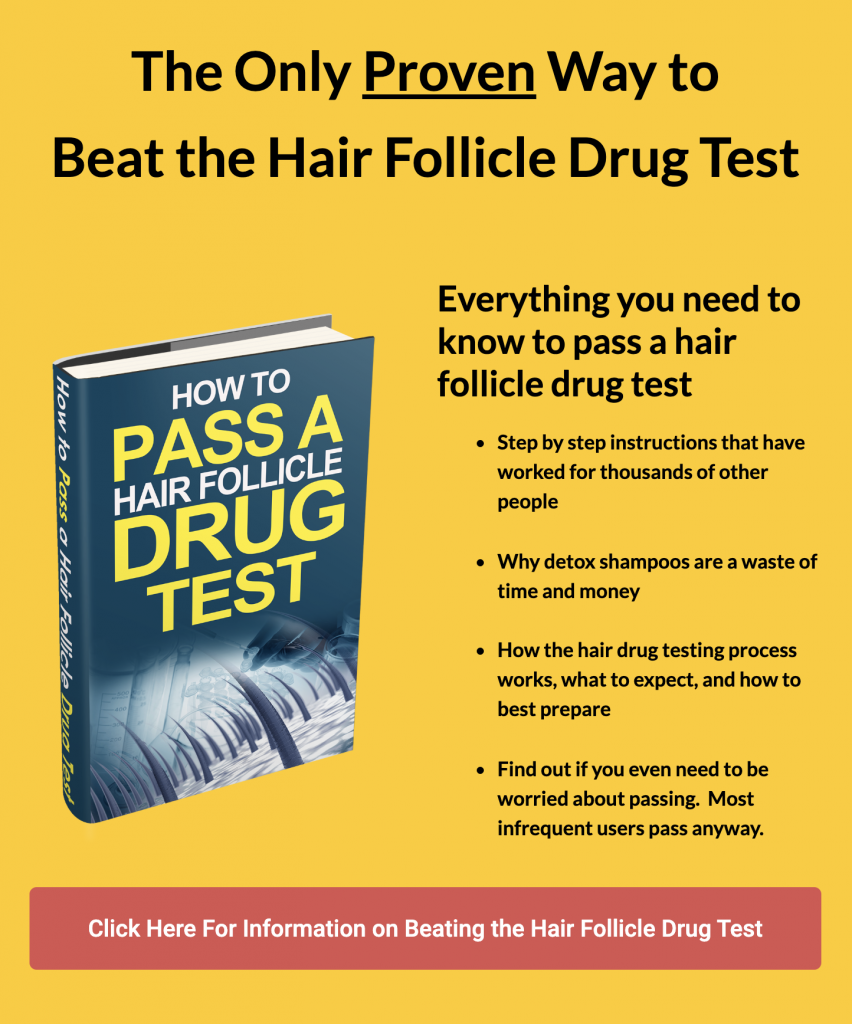With millions of hair follicle drug tests administered every year, police and unions are beginning to ask whether hair follicle drug testing is racially biased.
It’s not a new charge directed at the drug testing industry. In fact, from the very beginning many people questioned whether people with more melanin in their hair would test positive at a higher rate than those with lower amounts of melanin.

Learn How to Pass a Hair Follicle Drug Test
There is only one hair treatment method that has consistently produced "Passes" on the hair drug test and we want to show you how you can pass your test too.
Melanin is a protein in your hair that gives your hair color and is also the part of the hair that drugs bind to in hair shaft.
If these suspicions were true it would follow that the darker your hair the more likely one would be to test positive for drugs vs someone else with lighter colored hair.
Another question that was asked was whether or not other characteristics of the hair would impact hair follicle drug test results. In particular, is someone with thick hair more likely to test positive than someone with thin hair.
Again, this question relies on basic hair anatomy and common sense. If the reason a hair follicle test is supposedly unbeatable is because the drugs are buried deep in the hair shaft, protected by the hair cuticle, those with thicker hair cuticles would be more at risk of testing positive than those with less protection.
And the combination of those two questions formed the basis for the question of is hair follicle drug testing racially biased. People of African descent naturally have thick, curly, black hair. Other races are impacted as well but people of African racial descent would be the greatest impacted.
Is Hair Follicle Drug Testing Racial Biased?
While common sense would seem to indicate that there is at least the case to warrant further investigation, drug testing companies were obviously less than enthusiastic about poking holes in their new product which stood to generate millions of dollars in new revenue for them so while they all claim there is no racial bias in hair follicle drug testing, none have provided any conclusive evidence to support such a claim.
However, plenty of anecdotal evidence does exist. In doing research on how to pass a hair follicle drug test, there did seem to be some bias towards higher failure rates and darker hair colors. Some have even speculated that that is the reason why two people who have similar drug usage histories and only differ in hair color often receive entirely different results when tested.
Racial Bias Questions
Up until recently, those asking questions about the racial bias of hair drug tests have been easy to ignore. A positive hair follicle drug test result usually, in itself, shamed people into accepting their fate. If you get turned down for a job or fired from an existing job, it’s easier to find another employer than it is to fight drug test company claims that they are 100% accurate and have no racial bias.
But there is mounting pressure to ask whether or not these drug test company claims are actually true. People are starting to see patterns in positive drug test rates and the ethnicity of test takers.
 For instance, a coalition of 17 organizations, including the Transportation Trades Department, AFL-CIO (TTD), the American Civil Liberties Union (ACLU) and American Medical Review Officers recently sent a letter House Transportation and Infrastructure Committee urging the removal of hair testing for bus and truck drivers from any surface transportation bill.
For instance, a coalition of 17 organizations, including the Transportation Trades Department, AFL-CIO (TTD), the American Civil Liberties Union (ACLU) and American Medical Review Officers recently sent a letter House Transportation and Infrastructure Committee urging the removal of hair testing for bus and truck drivers from any surface transportation bill.
They cited many flaws in the testing process and called into question whether or not there was a racial bias in the testing results.
In the letter they stated:
“As a result, hair specimen runs serious risk of producing false positives. Studies also show that hair testing may have an inherent racial bias, as darker and more porous hair retains drugs at greater rates than lighter hair. And recently, a federal court of appeals held that Boston police officers subject to hair testing for illegal drugs had proven, ‘beyond reasonable dispute,’ a prima face case that the testing program caused a disparate impact on the basis of race in violation of the Title VII of the Civil Rights Act of 1964.”
The Boston case refer to may seem a little ironic in that it is police officers who are asking the courts to consider whether or not the hair follicle drug test is a legitimate test. [alternative source] It seems the cops don’t like it when their own start testing positive at a higher rate than they should.
In the case of the Boston police officers, the court found that it could not be mere coincidence that black police officers and cadets tested positive at a rate 2.5x higher than their white counterparts. The court sided with the plaintiffs and even cited the fact that the federal government has stopped using hair follicle drug testing over concerns about reliability.
Hair Drug Testing Reliability
It would seem that the hair drug testing industry has been a little too successful in promoting their own products. In an effort to create a super drug test that they could market as 100% reliable, they failed to take into account the backlash it would cause when widely adopted.
It’s fine when you’re testing job applicants and deciding whether or not a parolee should stay free because those people are highly unlikely to challenge the test results. Even when they are, character can be called into question and unless the victim is ready to mount an expensive defense and pay for scientists to disprove the drug company claims, the false positives and the racial bias can be kept buried.
But so many people believed the 100% accurate hype that hair follicle drug testing has become increasingly commonplace and now instead of ruining the career of a minimum wage worker, you’re messing with the jobs of airline pilots, police officers, and other groups of people who have large, well-funded unions who are willing to call in a team of experts on drug testing and point out the flaws and shine a light on what are merely marketing claims about the effectiveness of the testing process.
Do These Hair Drug Test Racial Bias Questions Indicate More?
It’s funny how opening one door actually reveals a lot more than it was intended to. The fact that this pushback is showing that a racial bias exists in hair follicle drug testing, it also indicates that all of the research on beating a hair follicle drug test is equally validated.
For instance, these court findings and the questions being raised by other unions lends a lot of credibility to whether or not a hair follicle drug test can be beat via bleaching one’s hair.
Likewise, it points out the hypocrisy of testing welfare applicants using the hair follicle drug test.
Hopefully, over time, the cracks in the invincibility of hair follicle drug testing will result in a complete rethink on the topic.


